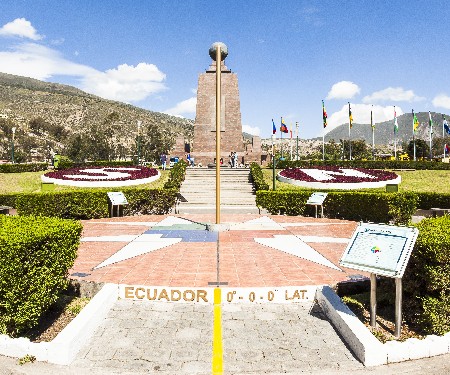By Rick Moore
Many hear the word Amazon and immediately think of the giant online ordering service. But there is a very real jungle known as the Amazon Rainforest. It was there on the Curaray River in Ecuador, five missionaries were savagely killed by several of the Aucas. Among those killed was Jim Elliot. His famous last words still ring true today: “He is no fool who gives what he cannot keep to gain what he cannot lose.” Movies have been made about his life and his death, and books have been written that tell his story.
Shortly after he was martyred, Jim’s wife Elizabeth went with her young daughter Valerie into that dark dangerous jungle, and met face to face with the men who had killed her husband. In their native language of Quechua, she said, “I forgive you.” Her husband had died for their tribe. Now, she has come to live for them. Though her husband was speared to death and thrown into the crocodile infested Curaray River, she forgave them.
Decades later, when I arrived in Ecuador for ten days to help build a church with an outreach center, there was no sign of any “savages.” The tribe which had been called the Aucas, which means savages, was now called the Waoranis, which means they are peaceful people. The love shown by the men who gave their lives, and the compassion and forgiveness shown by the women who came back to serve, had changed an entire city.

While giving free medical and dental care, it was observed that the women of that village would walk three miles each way to fetch water for their families. One of the men from our church was so moved, he went way above and beyond to purchase a generator and pump system to have fresh water at the outreach center. Several grown adults from the village cried with joy when they saw running water through a faucet for the first time ever. They insisted on thanking us, so they prepared guinea on a spit fire for dinner that night. Up until this point, no one from my church had mentioned Jim Elliot, the missionaries who gave their life, or their wife’s who came to serve the village. But that was about to change.
One of the ladies in our group asked if anyone of the Quechua who were sitting around the campfire that evening had ever met Elizabeth Elliot. A man raised his hand. Through an interpreter, he said his father was one of the Aucas who killed Jim Elliot and other missionaries. The man then proceeded to give us a view of the situation we had not considered. He said, “Some people think the hardest choice was for Jim to willingly die for us. Some think the hardest choice was for Elizabeth to come live for us. But knowing how my father was filled with guilt and shame for what he had done, I feel the hardest choice of all was for my father to accept forgiveness for himself.” I will never forget those words.
On the last day of our trip, before flying back to the United States, we planned a fun stop in Quito to take pictures of the equator. It was remarkable how one moment you can be standing on the southern part of the earth, take just one step, and then you are standing on the northern part of the earth. What a difference one step can make! Accepting forgiveness for ourselves can be as effortless. In just one step we can leave behind a place of guilt, shame and misery, in order to stand in a place of empathy, compassion and understanding. If you haven’t crossed over the line of forgiveness to enjoy a new world of peace, ask yourself, why is it such a hard decision? It is just one step.
Rick Moore is Communications Pastor at Destiny Worship Center in Miramar Beach.
The post One Step appeared first on South Walton Life | 30A News, Events and Community Information.

Be the first to comment on "One Step"